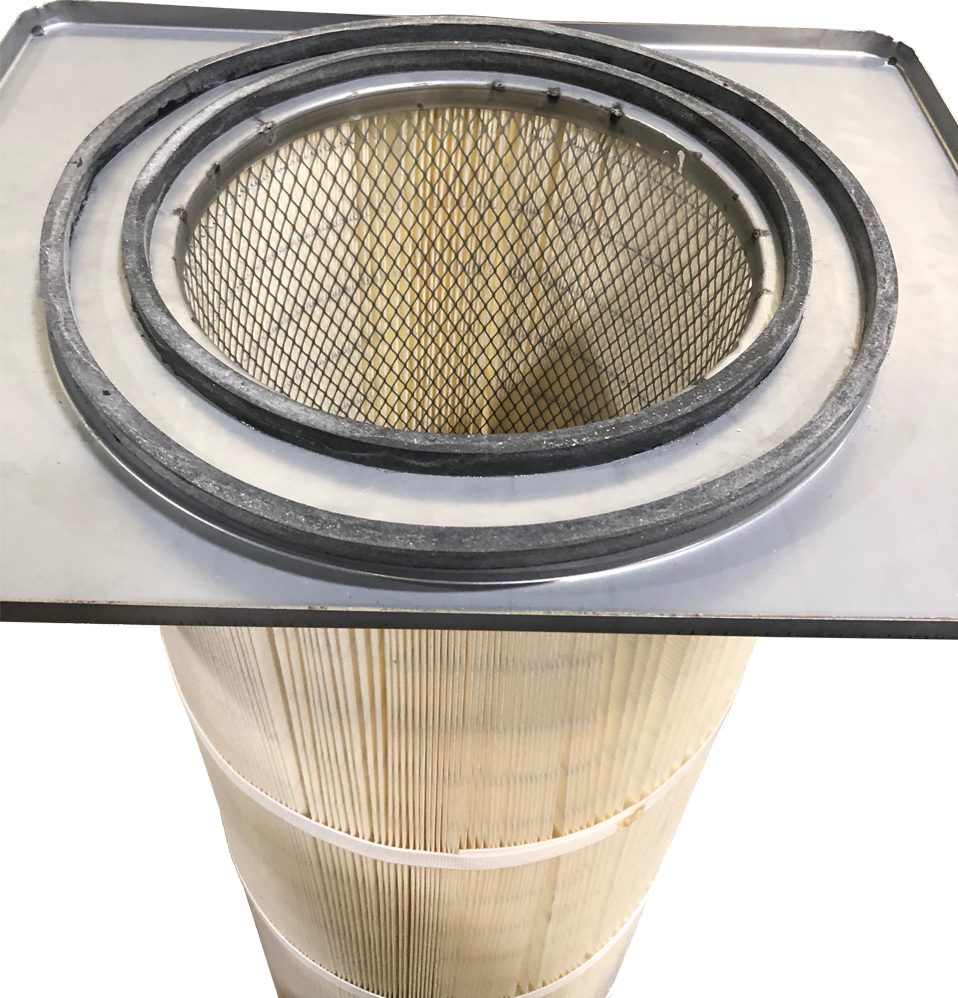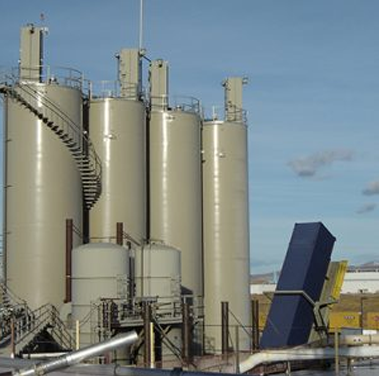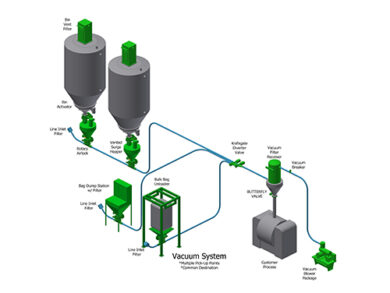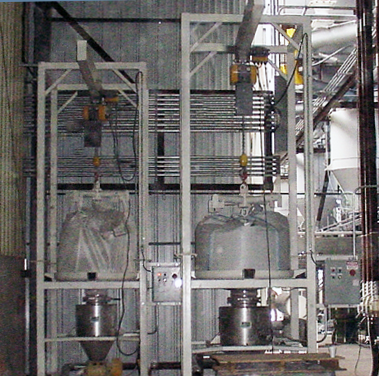The type of filter element you use in your dust collection system depends on the type of particulate that you are trying to eliminate, so the industry you work in is a large determinate. Obviously, pharmaceutical companies that work with dust from pills need a finer collection bag than agricultural companies that work with grain dust or cabinet manufacturers who collect sanding debris from wood. We’ll outline the different types of dust collection cartridges and filter bags, so you can see which is most appropriate for your application.
Baghouse vs. cartridge collection systems
As we’ve talked about before, cartridge dust collectors use filters that are deep pleated media that collect particulates, which are periodically cleaned from the filters via a pulse-jet system. The cartridge sits in a rack-like structure where air can be drawn through the pulse-jet collectors. Conversely, baghouse collection systems use a type of fabric filter bag to separate particulates from the air. They can also use a pulse-jet cleaning system to dislodge the particulate from the filters or an integral induced draft blower to blow air back through the bag to remove the collected dust.
Dust collector cartridge filters and bag filters by industry
These are some of the most common industries that use dust collection systems and which system typically works best for them.
Bag filters
Baghouse filters are a good choice for removing coarse, oily, and/or sticky particles. While this type of system has been around for decades, it’s still the best choice for many types of industries.
- Manufacturing — From metal shavings to wood chips, many manufacturing processes produce medium- to large-sized particles in the air. Depending on the application, these might be greasy or oily. Baghouse collection systems trap these large particles without clogging the system.
- Agricultural: Many agricultural applications produce coarse particles, making a baghouse filter a better choice.
- Woodworking: Wood particles that are large and fibrous are best handled by a bag filter.
- Metalworking — For metal shavings that are coarse and/or oily, a baghouse filter is the optimum choice.
- Food production: Both types of dust collection systems can work for food production companies. Those that deal with coarse, moist, or oily particles are well advised to use a baghouse collection system.
- Mining generally produces grimy particles, best collected with a baghouse filter.
- Furnace and dryer applications Baghouse filters handle heat and moisture without clogging much better than cartridge filters. Filter bags made of P84® Felt Polyimide can withstand operating temperatures of up to 500 degrees Fahrenheit.
Dust collection cartridge filter
Cartridge dust collection filters operate efficiently down to 0.3 microns. This makes them the optimum choice for industries that produce fine dust particles. Cartridge filters can be surface- or depth-type filters. Depth-type filters are designed to capture particles and contaminants through the total thickness of the medium, while surface filters capture particles that are blocked on the surface of the filter. A cartridge removal tool makes it easy to change the filter without coming into contact with the particulates inside.
Some examples of industries that use cartridge filter collection systems include:
- Welding applications: Welding generally produces fine metal “dust”, best suited to a cartridge filter.
- Laser and plasma cutting: Similar to welding, these applications produce very fine particles.
- Pharmaceuticals — “Dust” produced in stamping out pharmaceutical products can be efficiently collected with a cartridge filter.
- Seed and feed processing Fine seed and grain processing companies generally use cartridge filters to corral any errant particles.
- Woodworking: Depending on the size of the particles produced by the woodworking process, a cartridge system might work better than a baghouse system. Larger particles are best collected with a baghouse system. For smaller particles, a cartridge system is best.
To learn more about how to choose the right dust collection system for your business and application, visit camcorpinc.com to request a consultation. Camcorp has been a leader in air and environmental technology for nearly 30 years.





